استودیوها و شرکتهای زیادی با سری های مختلف BJD وجود دارند در بازار. به عنوان یک تازه وارد, ممکن است انتخاب عروسک های مناسب دشوار باشد. نگران نباشید!
در اینجا من برخی از اندازه های مشترک را معرفی می کنم بادی و لوازم جانبی آن (مثل چشم و کلاه گیس, و غیره). امیدوارم که بتواند به شما در یافتن عروسک ها و لوازم جانبی متناسب با شما کمک کند.
1. اندازه BJD
اندازه های مشترک: 1/3 از قد انسان, 1/4 از قد یک انسان, 1/6 از قد انسان, و اندازه عمو.
اندازه ها و بدن های خاص: 1/6 از اندازه بزرگسالان, 1/2 از قد انسان, 1/8 از قد انسان, 1/12 از قد انسان, اندازه انسان (1/1 از قد انسان), و BJD های حیوانات
با مقیاس پایین ارتفاع انسان, می توانید اندازه های مختلفی دریافت کنید. 1/3 از قد یک انسان (فراخوانی 1/3), به عنوان مثال, معقول بودن 1/3*180 سانتی متر. بیشترین 1/3 عروسک ها در روزهای اولیه حدود یک استاندارد از 60 سانتی متر در قد.
خواندن بیشتر: راهنمای اندازه نهایی عروسک های Volks BJD
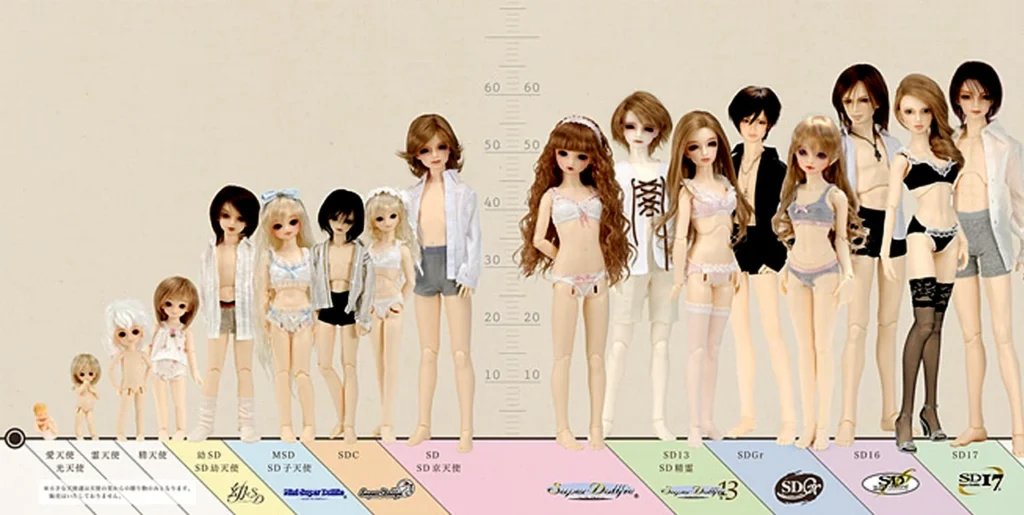
اما همانطور که بازار BJD رونق می گیرد, اندازه ها بسیار متنوع تر می شوند. ارتفاعات 1/3 عروسک ها از 58 سانتی متر تا 65 سانتی متر متفاوت است. بنابراین استاندارد اکنون مبهم می شود. در زیر برخی از ارتفاعات عمومی برای متفاوت وجود دارد اندازه عروسک ها.
| دسته اندازه | ارتفاع تقریبی |
|---|---|
| 1/2 | دور 80-90 سانتی متر |
| عمو | دور 70 سانتی متر |
| خواهر | دور 68 سانتی متر |
| 1/3 | زن: 58-62 سانتی متر; مرد: 58-65 سانتی متر |
| 1/4 | 40-46 سانتی متر; "1/4 کوچکتر" اگر در زیر 40 سانتی متر |
| 1/6 | دور 26 سانتی متر |
| 1/8 | دور 18 سانتی متر |
| 1/12 | زیر 12 سانتی متر |
16CM بسیار رایج است. ممکن است تعجب کنید که به چه اندازه متعلق به آن است. 1/8? یا 1/12? اکنون نمی توانیم بگوییم زیرا طبقه بندی آن هنوز تعریف شده است.
اجساد خاص از آن متفاوت است 1/3 از اندازه کودک به 1/6 از اندازه بزرگسالان. حتی اگر عروسک ها از همان ارتفاع باشند, لوازم جانبی آنها به دلیل سنین و سبک های مختلف قابل اشتراک نیست.
اگر با سر عروسک مطابقت داشته باشید بسیار عجیب به نظر می رسد, بدنه, و دست با رنگ ها و اندازه های مختلف به طور تصادفی. بنابراین لطفا این کار را نکنید.
به طور کلی صحبت کردن, در لباس, کلاه گیس, و سایر لوازم جانبی عروسک ها نمی توانند به اشتراک گذاشته شوند مگر اینکه اندازه آنها خیلی خاص باشد.
اندازه عروسک ها از استودیوهای مختلف و شرکت ها ممکن است حتی اگر از همان ارتفاع برخوردار باشند با یکدیگر متفاوت باشند. بیایید بگیریم 1/3 سر عروسک به عنوان نمونه. برخی از محیط های سر هستند 21 سانتی متر, و برخی در اطراف هستند 23. حتی اگر آنها دارای همان سر باشند, اندازه گردن آنها ممکن است متفاوت باشد. در صورت مطابقت با سر از شرکت A با بدنه شرکت B و دست یا سایر لوازم جانبی رزین از شرکت C ، در مورد رنگ ها و اندازه ها روشن باشید. ممکن است از سایر بازیکنان مشاوره بخواهید.

همانطور که در تصویر نشان داده شده است, در بین عموها تفاوت هایی در ارتفاع و اندازه وجود دارد. آنها به عموهای باریک طبقه بندی می شوند, عموهای متوسط, و عموهای عضلانی به طور کلی.
2. بافت ها & اندازه کلاه گیس BJD
کلاه گیس های BJD از بافت های مختلفی مانند فیبر درجه حرارت بالا ساخته شده اند, فیبر مودار, فیبر مقاوم در برابر حرارت, کانکالون, پشم, عیاش, OTC. کلاه گیس فیبر درجه حرارت بالا رایج ترین است. شما می توانید تقریباً همه سبک ها را با رنگ هایی که دوست دارید بدست آورید. قیمت متفاوت است, البته البته.
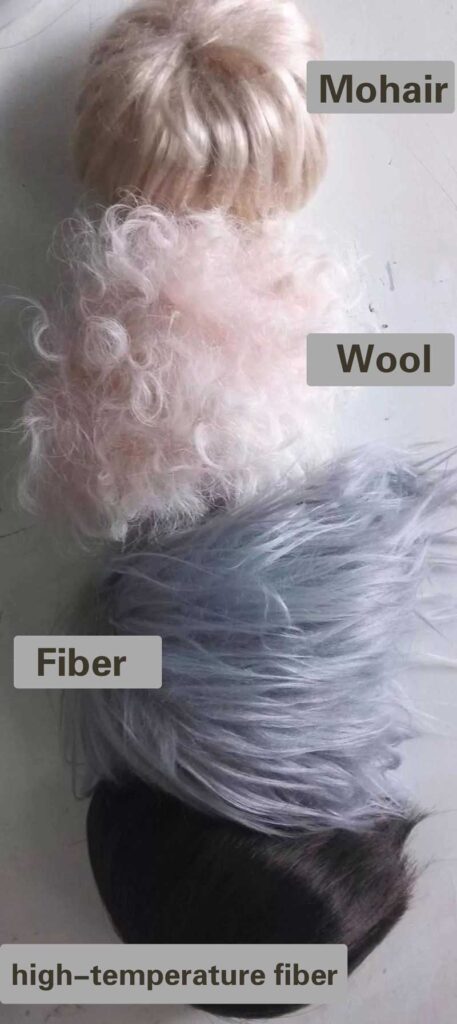
بیشتر عروسک ها باید در اندازه های مربوطه کلاه گیس بپوشند. به عنوان مثال, کلاه گیس 1/4 اندازه برای 1/4 عروسک ها و 1/3 اندازه برای 1/3 عروسک. فقط تعداد معدودی با اندازه های خاص می توانند کلاه گیس را با توجه به دور سر خود به اشتراک بگذارند.
کلاه گیس معمولاً به جز فیبر مودار و پشم مقاومت می کند. بنابراین کلاه گیس های مناسب برای عروسک های خود دریافت کنید.
در کنار, برخی از شرکت ها برای اندازه گیری اندازه از اینچ استفاده می کنند.
9-10 اینچ برابر است با 22-24 سانتی متر
8-9 اینچ برابر است با 21-22.5 سانتی متر
7-8 اینچ برابر است با 1/4 اندازه
6-7 اینچ برابر است با 1/6 اندازه
3. بافت ها & اندازه چشم های BJD
با توجه به بافت های مختلف, چشم های BJD را می توان به چشم های شیشه ای تقسیم کرد, چشمان اکریلیک, و چشم های رزین. این چشم ها می توانند نور را منعکس کنند, که این توهم ایجاد می کند که دید عروسک ها از شما پیروی می کند.
و هنگام عکاسی, احساس می کند که آنها به دوربین نگاه می کنند. چشم های زیبا عروسک های شما را زنده تر می کند, که یکی از ویژگی های مهم BJD است.
چشم های شیشه ای رایج ترین انواع است. اندازه های متنوعی وجود دارد, رنگ, و الگوها. قیمت ممکن است متفاوت باشد $10 (برای یک جفت چشم اردک ماندارین خانگی) به هزاران دلار, بسته به صنایع دستی و مناطق مختلف.
شما می توانید یک جفت چشم شیشه ای خانگی را با قیمت چند ده تا صد دلار خریداری کنید, در حالی که افراد خارجی با صدها دلار. چشم های شیشه ای را می توان به عنوان درجه A و درجه B بر اساس ظاهر آنها درجه بندی کرد (خواه متقارن باشند و آیا حباب دارند.)
چشم های اکریلیک الگوهای بیشتری دارند. آنها به دلیل انعطاف پذیری قابل توجه برای بازیکنان برای DIY مناسب هستند.
هر چند, از آنجا, آنها به نظر واضح نیستند. هزینه ها و قیمت های آنها پایین تر از دو نوع دیگر است.
چشم های رزین ویژگی های شیشه ای و اکریلیک را با هم ترکیب می کنند. آنها بسیار نادر هستند زیرا ساخت آن آسان نیست. در خانه و خارج از کشور برخی از سازندگان چشم رزین عالی وجود دارد. در کنار, آنها نقصی دارند که رزین زرد خواهد شد.
نوع نادر دیگر چشم های نرم است. آنها به خوبی می توانند سوکت های چشم را در خود جای دهند اما به راحتی رنگ آمیزی می شوند. فقط شرکت های خارجی در حال حاضر این نوع را تولید می کنند.
با توجه به شکل های مختلف, چشم ها همچنین می توانند به Radian High طبقه بندی شوند, رادیان (از عنبیه), عنبیه کوچک, عنبیه عادی, عنبیه بزرگ, کره, شکل قایق, شکل شطرنج, نیمکره, توخالی, و موارد جامد, OTC. اگرچه آنها شایستگی و تقصیر خود را دارند, آنها نیازهای اشکال مختلف چشم BJD را برآورده می کنند. می توانید جزئیات مربوط به اندازه های مختلف چشم را بررسی کنید. به راز, برای عروسک هایی با چشمان بسته هیچ چشمی لازم نیست.
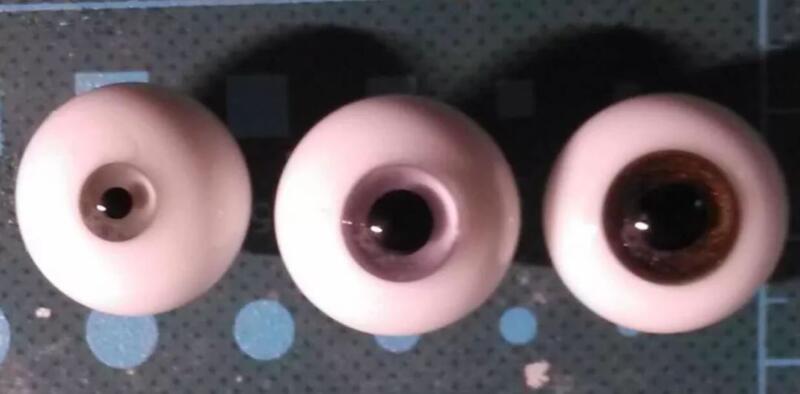
عنبیه کوچک, عنبیه عادی, و عنبیه بزرگ با همان اندازه پایه
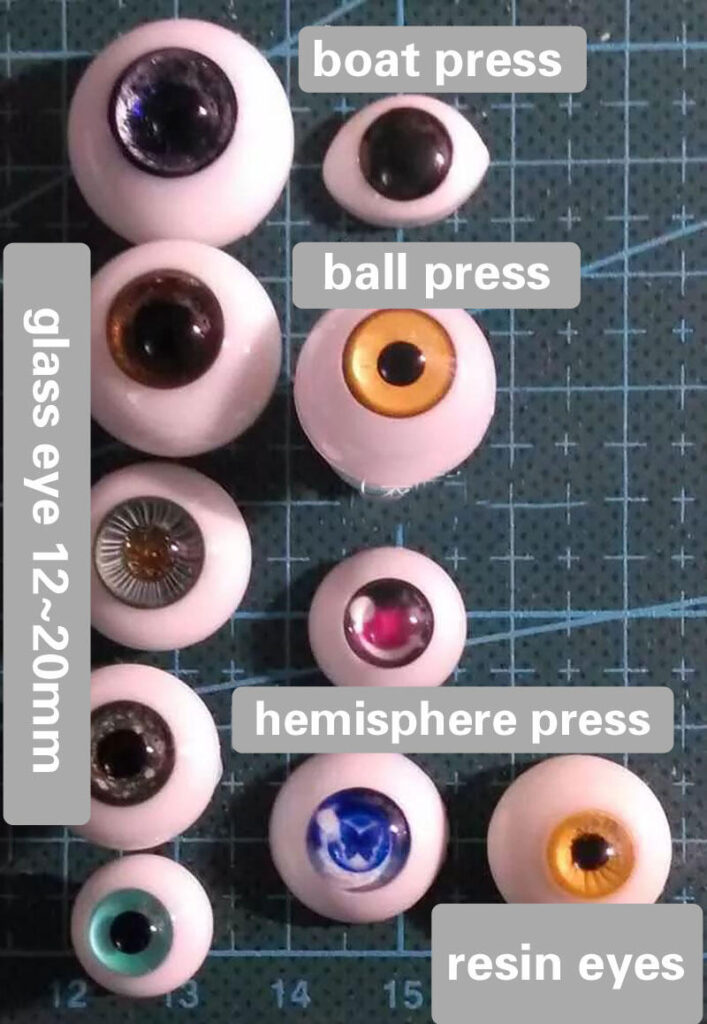
چشم از بافت ها و اندازه های مختلف
4. مکمل
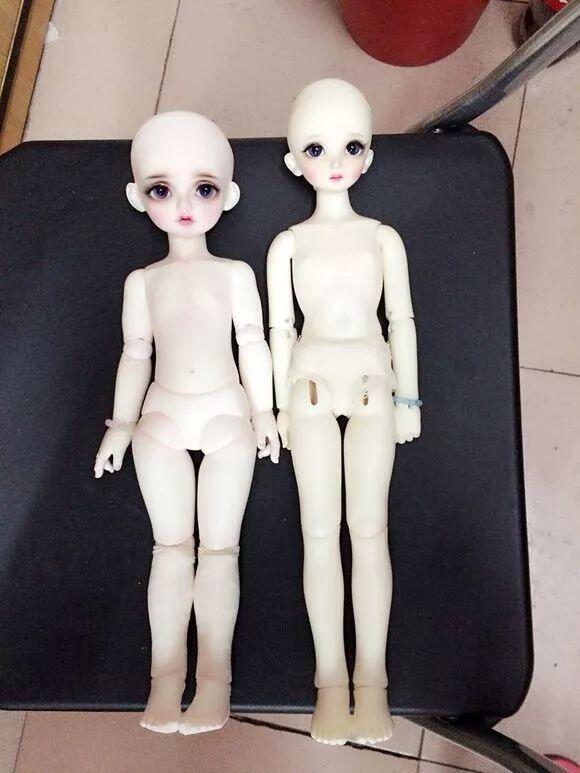
1/4 کودک غول پیکر در مقابل. 1/4 msd
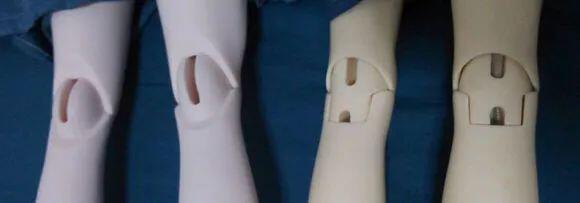
تک در مقابل. دوتایی
برای نتیجه گیری, این مقدمه دانش عمومی در مورد اندازه ها و بافت های مشترک BJD را به افراد تازه وارد ارائه می دهد, کلاه گیس های آن, و چشمانش. لطفا در صورت تمایل به اضافه کردن هر چیزی. آرزو می کنم بازیکن BJD می تواند عروسک های رویایی خود را پیدا کند!






